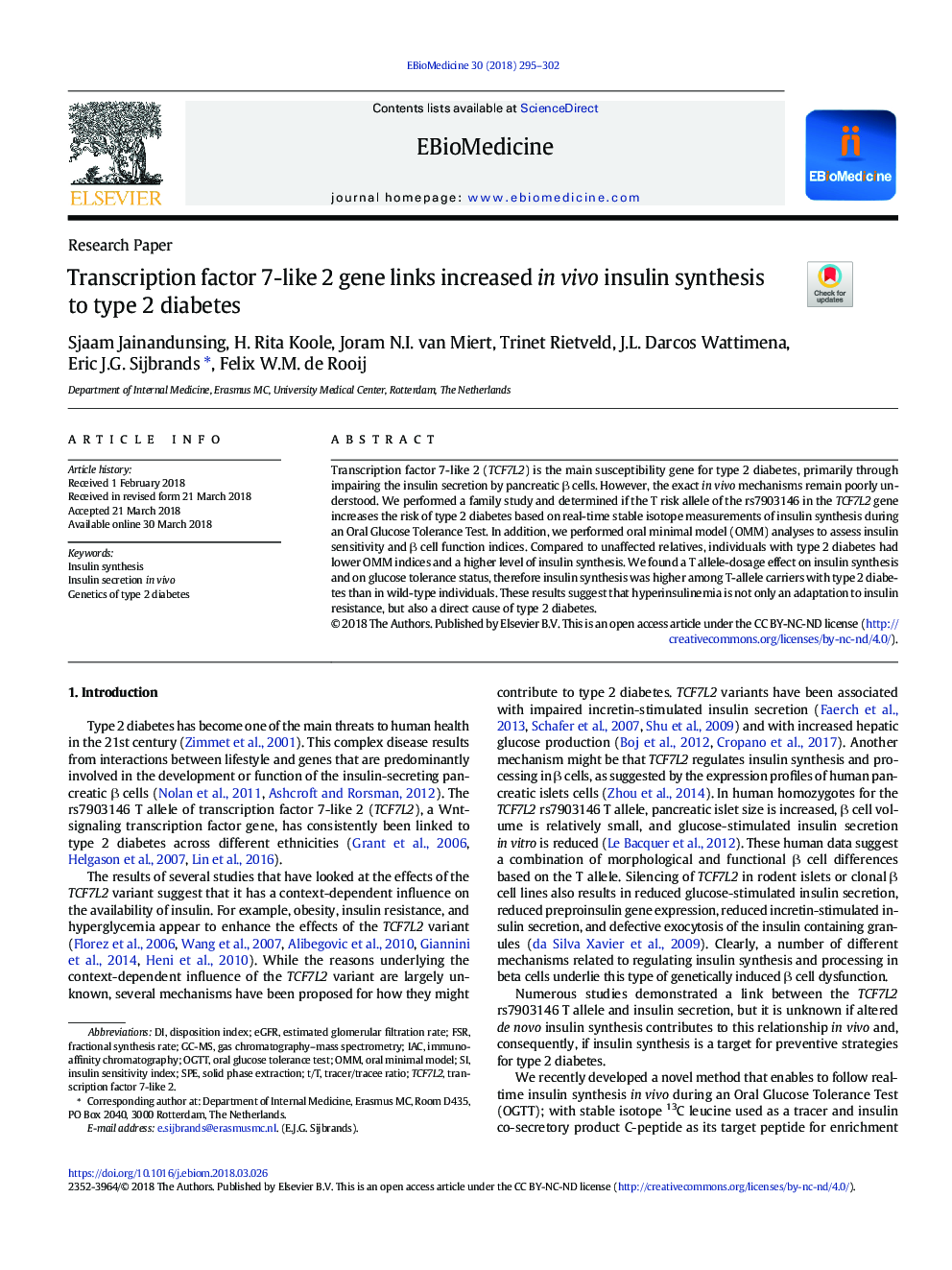| Article ID | Journal | Published Year | Pages | File Type |
|---|---|---|---|---|
| 8437426 | EBioMedicine | 2018 | 8 Pages |
Abstract
Transcription factor 7-like 2 (TCF7L2) is the main susceptibility gene for type 2 diabetes, primarily through impairing the insulin secretion by pancreatic β cells. However, the exact in vivo mechanisms remain poorly understood. We performed a family study and determined if the T risk allele of the rs7903146 in the TCF7L2 gene increases the risk of type 2 diabetes based on real-time stable isotope measurements of insulin synthesis during an Oral Glucose Tolerance Test. In addition, we performed oral minimal model (OMM) analyses to assess insulin sensitivity and β cell function indices. Compared to unaffected relatives, individuals with type 2 diabetes had lower OMM indices and a higher level of insulin synthesis. We found a T allele-dosage effect on insulin synthesis and on glucose tolerance status, therefore insulin synthesis was higher among T-allele carriers with type 2 diabetes than in wild-type individuals. These results suggest that hyperinsulinemia is not only an adaptation to insulin resistance, but also a direct cause of type 2 diabetes.
Keywords
Related Topics
Life Sciences
Biochemistry, Genetics and Molecular Biology
Cancer Research
Authors
Sjaam Jainandunsing, H. Rita Koole, Joram N.I. van Miert, Trinet Rietveld, J.L. Darcos Wattimena, Eric J.G. Sijbrands, Felix W.M. de Rooij,
